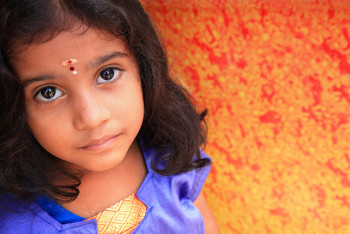
Public safety for women and girls in rural areas
Media Contact
In the rapidly expanding metropolitan hubs of Mumbai, Delhi, Bangalore and Hyderabad, it is easy to forget that approximately 70 percent of India’s population lives in rural areas. While the mountains, dense jungles, expansive fields and coastlines that characterize rural India are different than the teeming and crowded cities, one thing both rural and urban areas have in common is an undercurrent of gender inequality.
In rural villages, public spaces can pose a serious threat to the safety and well-being of women and girls who live there. While limited data exist on the prevalence and nature of sexual violence against women and girls (SVWAG) in such areas, available research shows that the prevalence is higher in rural communities (9.7 percent) than in urban areas (5.9 percent). Because of this real or perceived violence women’s and girls’ ability to move around their community is restricted in an attempt to keep them “safe.” As a result, many girls are forced to give up their education after middle school, as traveling outside the village poses too many “risks” to girls’ safety. This lack of mobility leads to inequitable access to education, health care and employment opportunities and participation in civic engagement that undercut efforts to empower women and girls and tackle poverty.
In India, national programs have begun to emphasize public safety in urban areas as a priority, as news about attacks on women in India has circled the world. In rural areas, bodies of local governance called Gram Panchayats (GPs) are charged with the responsibility of equitable development and furthering social justice. These GPs are made up of democratically-elected leaders who wield considerable power to shape the norms and priorities of their communities. Yet their focus has remained limited to more traditional development concerns related to water, electricity and roads and the implementation of schemes. Despite the fact that social justice falls within their jurisdiction, when it comes to ensuring the safety and well being of women and girls, GPs have woefully neglected their responsibility.
It is within this context that the International Center for Research on Women (ICRW) introduced the kNOw Fear program – a gender integrated model that aims to foster freedom from violence for women and girls in rural public spaces while building the capacity of GPs to elevate public safety as a critical component of local governance. Using a mixed-methods research approach, kNOw Fear will be the first evaluated model of its kind to address women’s safety issues and perceptions of safety among rural populations.
“Our vision for kNOw Fear is driven by the belief that public space violence and its prevention must be prioritized as a serious concern that impinges on and influences the achievement of various development goals and commitment to gender equality,” reflects Nandita Bhatla, ICRW’s Senior Technical Specialist.
The program’s overall goal is to identify a validated model for catalyzing GPs to prioritize and respond to sexual violence faced by women and girls in rural public spaces and advance evidence-based advocacy around the prevalence and impact of SVAWG. The kNOw Fear program aims to accomplish this in a three-tiered approach: mobilizing women and youth (including both girls and boys) to recognize, prevent and demand action on such violence and catalyzing GPs to prioritize and plan to address concerns around public safety in their areas.
Over the next three years, ICRW will be piloting kNOw Fear in Gujarat, India, as an evaluated, intervention research program, designed on the basis of an intensive phase of formative research. ICRW, in collaboration with SWATI (Society for Women’s Training Initiatives) Gujarat and other local partners, will build upon the state’s reputation for good governance and innovative usage of information, communication and technology (ICT) in e-governance. The results gathered in Gujarat will create a robust evidence-base platform from which to understand the issue at the state level, strengthen advocacy and provide potential sites for uptake and replication of the model at the national level.
“We are confident that through rigorous research, kNOw Fear will catapult the realities of sexual violence against women and girls in rural areas to the forefront of the conversation around public safety and inspire appropriate action to be taken by policy makers. It is imperative that gender concerns and women’s safety be center-staged into equitable development,” said Bhatla.

